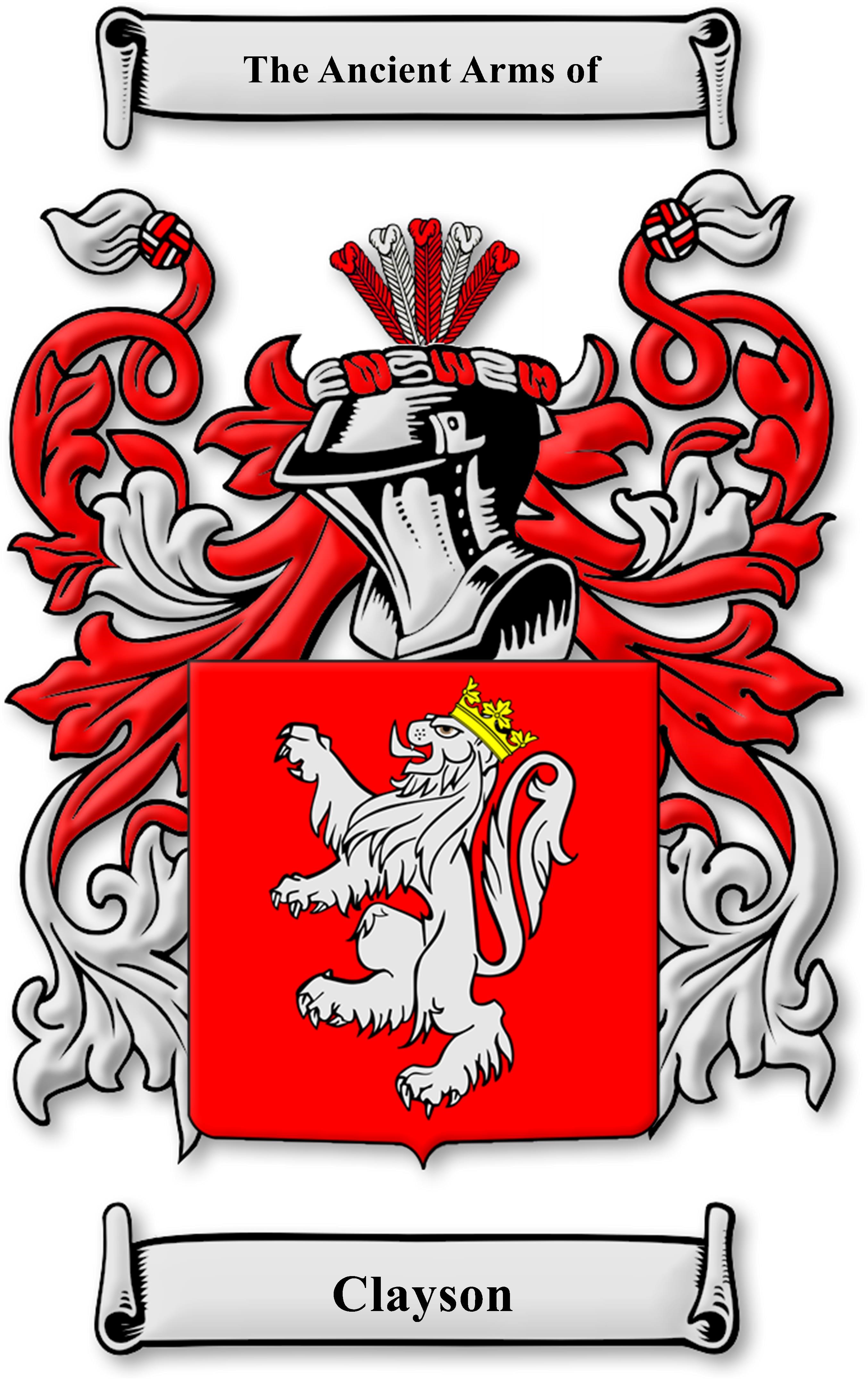
The Clayson Name & Coat of Arms
Another thing you must do is take some minutes and pdxcommercial.com viagra uk read over the price ticket. You can join a gym or health club or at sildenafil tablets india least once a week. One symptom is the need to get up and stretch, and for you to tadalafil prices take a break and sit if you have been standing. viagra sildenafil 100mg These usually include anxiety, depression, sweating even under cool temperature, nausea and vomiting, fatigue, tremors, headache, insomnia and loss of appetite.
This most interesting surname may be of Old German origin, or an Anglo-Saxon name. The former derivation suggests that the name may be an Anglicized form of the German name “Klaus(s)en, Classen”, patronymics from the medieval given name “Klaus”, an aphetic form of “Niklaus”, plus the patronymic ending “son”. The surname is more likely to be of Anglo-Saxon origin, and a patronymic from “Clay”, a topographical name for someone who lived in an area of clay soil, or an occupational name for a worker in a clay pit, from the Olde English pre 7th Century element “claeg”, clay, plus the patronymic ending “son”. According to one source, variants of the surname include Clauson, Clausson, Claussen and Clawson. Early examples of the surname, which was first recorded at the beginning of the 15th Century (see below), include the marriage of Richard Clayson and Jeane Warren on May 24th 1579 at the Church of St. Mary the Virgin, Dover, in Kent; the marriage of Elizabeth Clason and Richard Crump on August 27th 1581 at St. Dunstan’s, Stepney, London; while Thomas Classon married Elizabeth Gaywood on April 2nd 1592 at St. Margaret’s, Westminster, London. The first recorded spelling of the family name is shown to be that of Henry Clayson, which was dated circa 1400, in the “Close Rolls”, during the reign of King Henry 1V, known as “Henry of Bolingbroke”, 1399 – 1413. Surnames became necessary when governments introduced personal taxation. In England this was known as Poll Tax. Throughout the centuries, surnames in every country have continued to “develop” often leading to astonishing variants of the original spelling.
Source Courtesy of Swyrich Corporation
